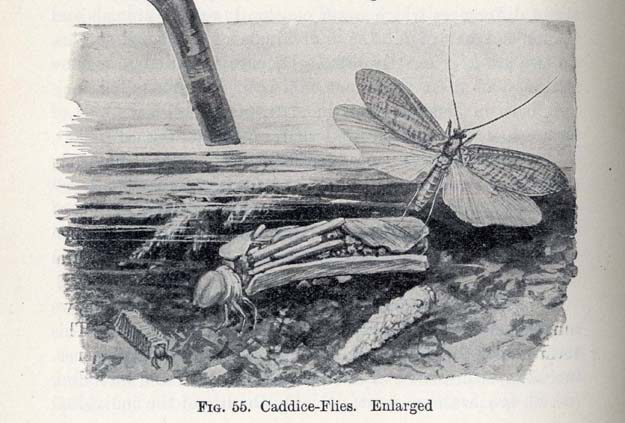Henry R. Linville & Henry A. Kelly, A text-Book in General Zoology, Boston, Gin & Company, 1906, p. 105.
The caddice-flies are, in their immature stage, aquatic larvae which build protective cases composed of grains of sand, or bits of straw, or leaves. These cases afford concealment and protection to the young. Applying the principle of natural selection here, it would be said that those caddice-flies which varied in the direction of protective cases have survived, and those which did not have been devoured or otherwise destroyed; hence a race of case-building caddice flies is in existence to-day. Natural selection results in “the survival of the fittest” for the environment, and the principle is used to explain the degeneration due to parasitism, as well as the development of increased complexity in animal structure.
